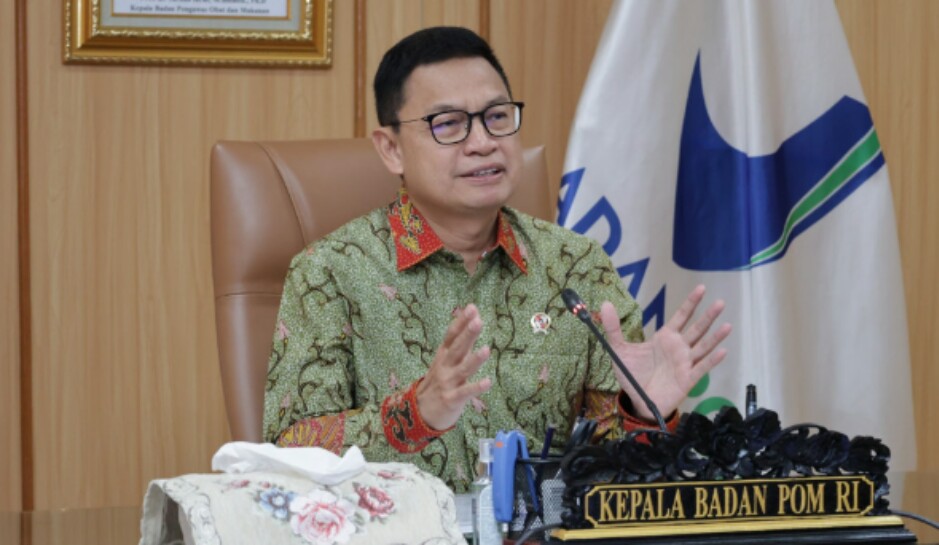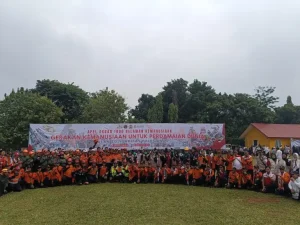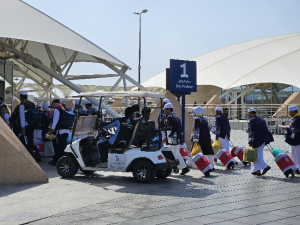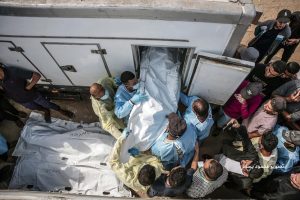By Taruna Ikrar, Chairperson of the Indonesian Food and Drug Authority (BPOM)
“Millions of Indonesians embark on the spiritual journey of a lifetime each year but behind this sacred pilgrimage lies a logistical feat that requires not only faith, but vigilance. At the heart of it: the safety of what pilgrims consume.”
As more than 240,000 Indonesian pilgrims prepare for Hajj in 2025, ensuring their food safety in the scorching Saudi climate becomes not just a logistical challenge, but a moral imperative.
The Indonesian Food and Drug Authority (BPOM) has stepped up and this year, for the first time, its top leader joins the Amirul Hajj entourage as an official member, ensuring that food safety oversight is embedded at the highest level of Indonesia’s pilgrimage mission.
Also Read: The Forty-Four-Days of Glory: Azerbaijan’s Struggle for Justice and Peace
Foodborne illness is a silent threat during Hajj. With temperatures soaring above 40°C and mass catering serving hundreds of thousands daily, even minor lapses in hygiene or food handling can have severe consequences.While spirituality is at the core of the pilgrimage, the physical well-being of pilgrims, especially the elderly must not be overlooked.
Massive Scale and Critical Challenges
Indonesia’s hajj catering operation represents one of the world’s most impressive food logistics achievements, demonstrating commitment to caring for citizens during their sacred journey.
Operating 76 specialized kitchens across Saudi Arabia, Indonesia feeds 221,000 pilgrims annually through a sophisticated system producing 25.8 million meal boxes each year. The chefs work around the clock to ensure cultural authenticity, using at least 30% domestic products including Indonesian spices.
The operation faces unique challenges that go far beyond typical mass catering. With 63-67% of Indonesian pilgrims being elderly with chronic diseases, the food service must accommodate special dietary needs while maintaining familiar flavors of sambal, fresh rice, and hot meals that Saudi caterers often struggle to replicate to Indonesian standards.
Also Read: Palestine Solidarity Month: A Collective Movement for Al-Aqsa and Palestine’s Freedom
The true test comes during the Arafat-Muzdalifah-Mina circuit, where the operation becomes a matter of pilgrim safety and wellbeing. During these peak hajj days, 2.4 million ready-to-eat packages containing Indonesian specialties like rendang and fish curry must be distributed under brutal 52°C desert conditions.
The logistical complexity intensifies when considering that Arafat offers no food vendors, forcing complete dependence on pre-distributed meals. Pilgrims then move through overnight stays on Muzdalifah’s open ground before reaching Mina, where food prices typically double.
This massive undertaking reflects Indonesia’s understanding that hajj is not just a spiritual journey but a vulnerable period requiring careful protection of citizen welfare. The success demonstrates how logistical excellence can serve both religious obligation and national responsibility.
Why BPOM Supervision is Important
Also Read: Hassan al-Turabi: A Controversial Thinker from Sudan
The complexity of Indonesian Hajj food services demands specialized oversight, where BPOM’s expertise becomes particularly valuable. BPOM deployed a technical food safety team during the 2023 and 2024 Hajj seasons. These officers worked closely with the Indonesian Hajj Organizing Committee (PPIH) to conduct on-the-ground inspections, monitor food storage temperatures, and assess hygienic practices in the production kitchens.
BPOM’s field presence ensures that these standards are not merely guidelines, but actively enforced through systematic sampling, rapid testing, and risk-based inspections. This includes spot-checking packaging integrity, observing food transport condition, and evaluating supplier compliance with both Saudi and Indonesian food safety regulations.
Significantly, in previous engagements ahead of the 2025 pilgrimage, the Chairperson of BPOM had held high-level meetings with Prof. Hisham S. Aljadhey, the CEO of the Saudi Food and Drug Authority (SFDA). As a result of these meetings, both parties agreed on the importance of ensuring that all food and beverages consumed by Indonesian pilgrims and officers during the 1446 H / 2025 M Hajj season meet the required standards of safety and suitability for consumption.
The Saudi government has also entrusted Indonesia with the provision of ready-to-eat meals produced domestically for Indonesian Hajj and Umrah pilgrims. BPOM’s oversight includes these packaged meals, which are specially designed to last up to one year at room temperature without preservatives. These flagship products fall into a specialized category of food that requires stringent regulatory supervision during distribution in the Armuzna area.
Also Read: Who Exactly is the RSF Group Shaking Sudan?
These products must comply with multiple certification standards: Halal certification from MUI for religious compliance, BPOM registration for food safety, ISO 22000 for quality management, and HACCP (Hazard Analysis and Critical Control Points). BPOM plays a critical role in ensuring that these complex, multi-certified products retain their safety and quality throughout the demanding logistics chain of Armuzna, where extreme heat and high distribution volumes challenge even the most resilient food preservation systems.
To underscore the strategic importance of food safety during the pilgrimage, the BPOM Chairperson now serves as part of the official Amirul Hajj entourage. This expanded role signals a growing acknowledgment that food safety is not merely a logistical concern, but an integral element of Hajj services.
Strengthening the Food Safety Framework
BPOM will undertake several concrete measures to institutionalize and expand its role. The technical team should become a permanent component of Indonesia’s Hajj operations.
Also Read: The Two-State Solution (Palestine–Israel) in Historical Perspective
BPOM continuously enhances its regulatory cooperation with the SFDA through technical knowledge exchange. Similarly, comprehensive training programs for Indonesian food service personnel have been established, integrating religious dietary standards with scientific food safety protocols, focusing on high-temperature food handling and rapid contamination response.
Looking ahead, BPOM will develop emergency response protocols to manage food safety incidents during the pilgrimage. This will include deploying mobile inspection units in Saudi Arabia and establishing food recall procedures tailored to the pilgrimage context.
Protecting Faith Through Food Safety Excellence
Indonesia’s Hajj services stand at a crossroads where spiritual devotion meets modern public health imperatives. Serving Hajj pilgrims is truly “serving the guests of Allah,” elevating food safety oversight from a regulatory requirement to a sacred responsibility.
By making food safety central to hajj services, Indonesia ensures that the sacred journey remains truly sacred. This approach doesn’t diminish spirituality; it elevates it, recognizing that caring for pilgrims’ physical needs is itself an act of devotion worthy of Indonesia’s position as the world’s largest Muslim nation. []
Also Read: Enchanted by K-Dramas, Dragged into Slander: Time for Muslims to Rise!
Mi’raj News Agency (MINA)




































 Mina Indonesia
Mina Indonesia Mina Arabic
Mina Arabic